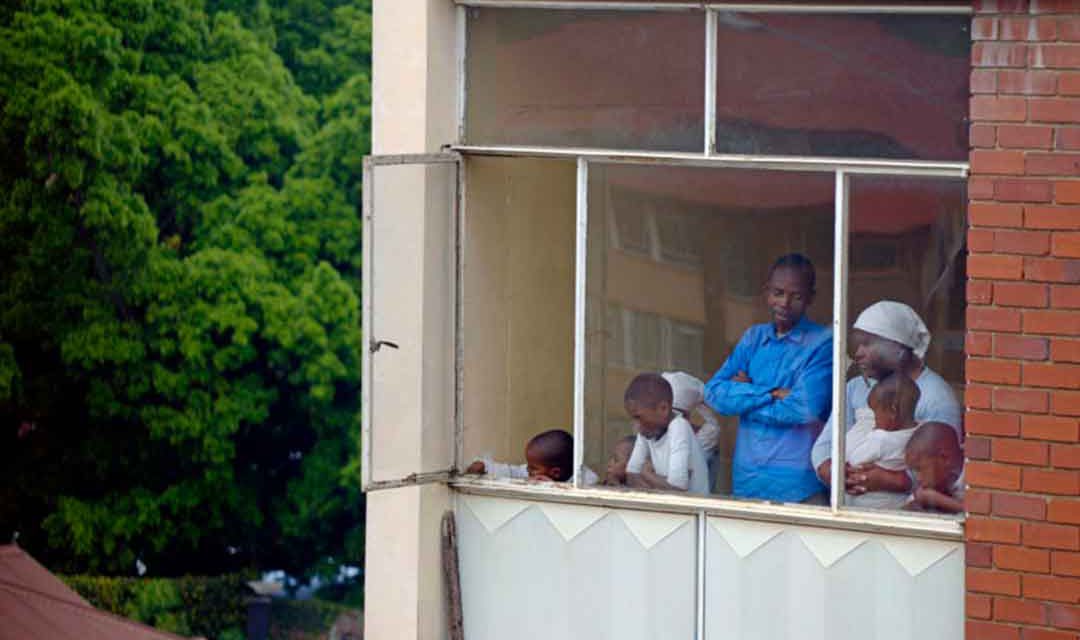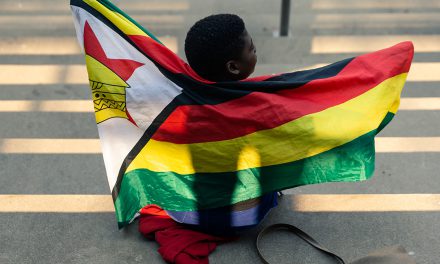High unemployment levels mean that Zimbabweans, especially young people under the age of 30, face a constantly precarious financial reality
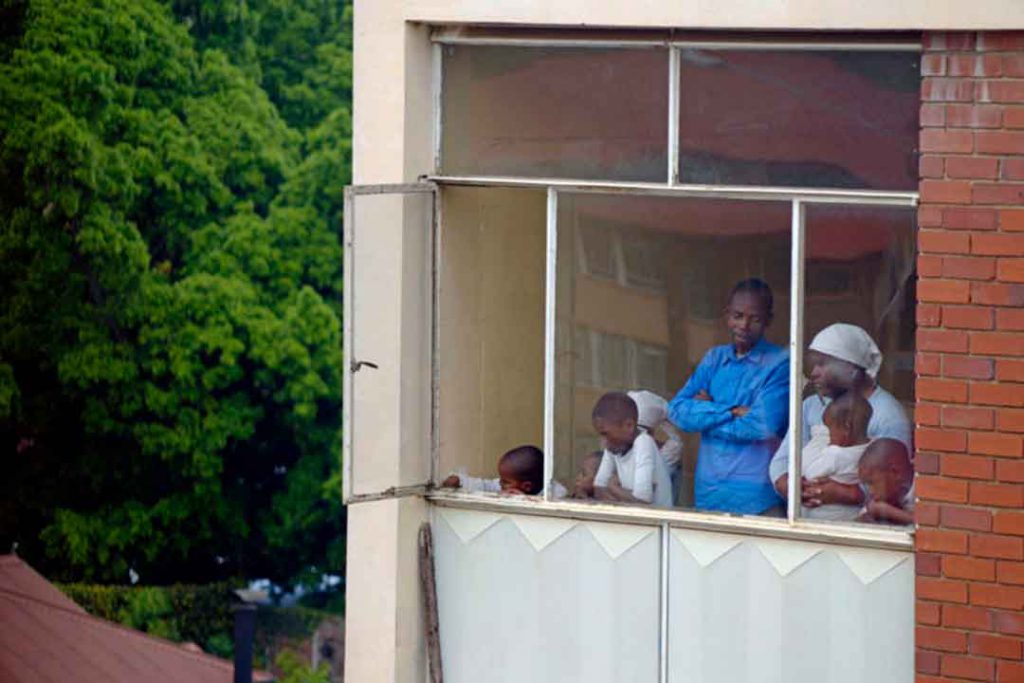
Zimbabwe, Harare, 19 November 2017. A family peers down onto the city from a dilapidated blook of flats. PHOTO Graeme Williams
Citizen engagement with local authorities, as well as local authorities’ provision of quality services, is an integral part of good governance. This two-way system captures two components of good governance, one of which is how authorities use public resources and the other how citizens respond to the way public resources are used or abused.
The work of Good Governance Africa-Zimbabwe (GGA-Z) is defined by the promotion of fact-based knowledge. To increase our understanding of performance at local levels of governance, GGA-Z conducted a Citizen Engagement Survey (CES) in Zimbabwe between June 2018 and March 2019.
Socio economic dynamics of Harare, Masvingo, Bulawayo and Mutare
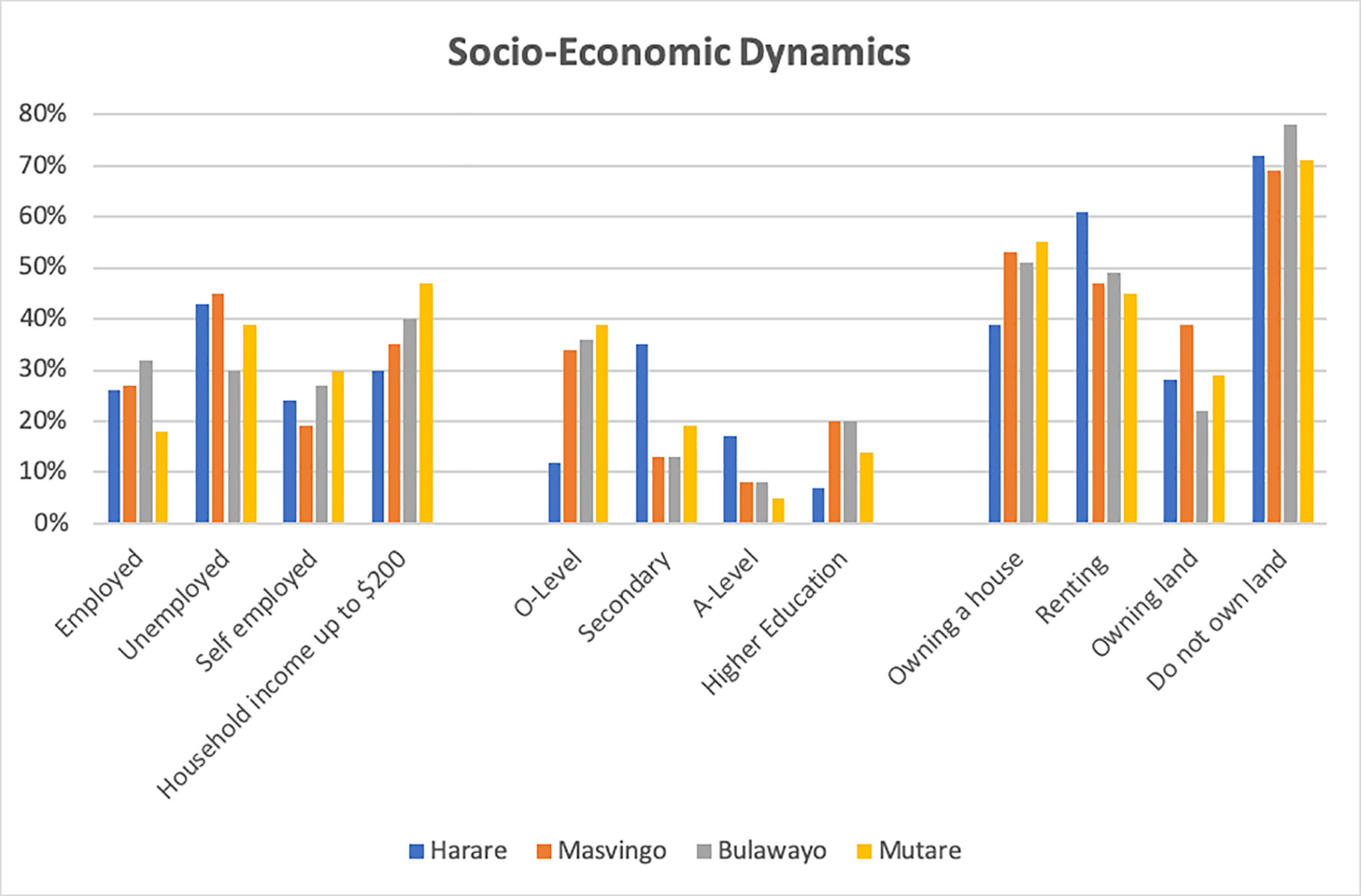
The survey was conducted in four urban areas: Harare, Masvingo, Bulawayo and Mutare. It focused on ascertaining how wards in these areas are managed and the extent to which basic services such as water, electricity, refuse removal, police services, health, and education services are provided or are perceived to be provided by citizens.
We found a high percentage of unemployment in all four cities. Most of the respondents who were unemployed were between the ages of 18-29 years and had an O-level qualification.
Employment was low in all four cities, with Mutare having the lowest levels of employment at 18%, followed by Harare (26%), Masvingo (27%) and Bulawayo (32%) respectively. While Mutare had the lowest level of formal employment, contrary to expectation it did not have the highest unemployment. Mutare, however, did have the highest self-employment (30%). Bulawayo followed with 27%, Harare with 24%, while in Masvingo only 19% of the sample was self-employed.
Zimbabwe employment and incomes
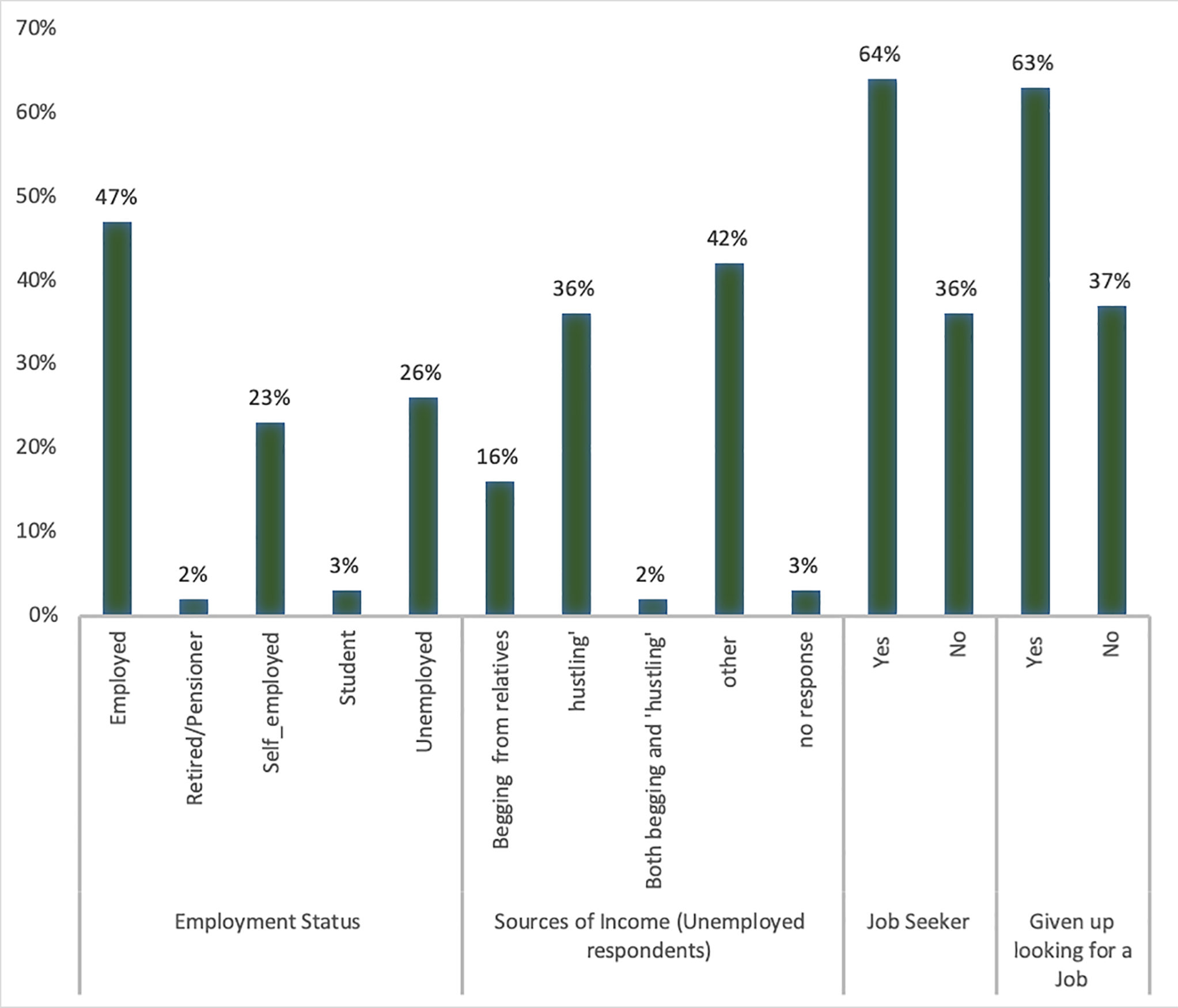
Although Masvingo had the lowest number of self-employed people in the sample, the city topped the table with the highest unemployment level (45%) of all four cities, closely followed by Harare with 43%, Mutare with 39% and Bulawayo with 30%.
O-Level education dominated as the highest education level attained by respondents in Mutare (39%), Bulawayo (36%) and Masvingo (34%); while secondary education was the highest level attained in Harare. Harare was also the city with the most respondents who attained an A-Level certificate, while in Mutare only 5% of the sample had attained A-Level education.
All four cities generally had low levels of higher education, whether a certificate, diploma or degree. The number of people living in rental accommodation was highest in Harare (61%) with only 39% owning houses. Mutare was the city with the highest percentage of home ownership, with over half of the sample respondents owning houses (55%,) and 45% renting accommodation. Masvingo closely followed, with 53% owning houses and 47% renting. The percentages were similar for Bulawayo with 51% of respondents owning houses and 49% renting.
Income analysis indicated that the population in all four cities faced a financially precarious reality, with the vast majority earning relatively low wages of $200 a month, except in Harare where the wage rate was slightly higher. In all four cities, most respondents – employed and unemployed – earned up to $200 a month.
The majority of respondents believed their wards were not promoting employment opportunities and investment in the community.
Land ownership was relatively low in all cities. Of those who owned homes, a large majority were living in houses owned by families rather than the individual respondent themselves; the majority of respondents were living in rented houses.
While the majority of respondents had access to services such as water, sanitation and refuse removal, most of them were dissatisfied with service delivery. Sanitation services were the most criticised. A few locations in high-density areas raised concerns over their access to clean and functioning individual toilets rather than communal ones.
Masvingo real estate and tenure
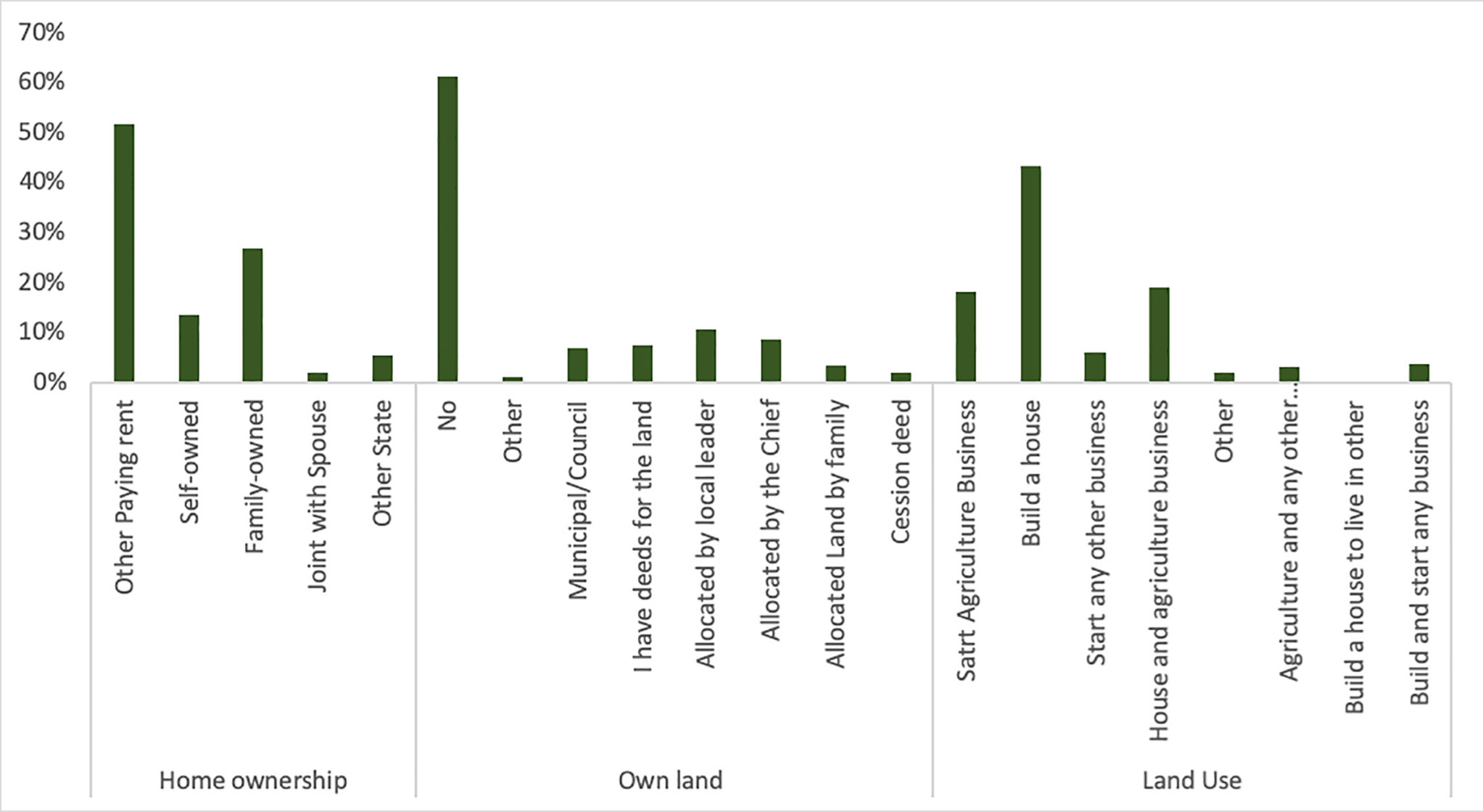 Harare was the city with the highest sample of respondents with access to piped water inside their homes with 65% of them stating that they were always satisfied with the quality of the water. In Bulawayo, 75% of the sample stated that they had access to piped water inside their homes, while 72% were always satisfied with the quality of the water.
Harare was the city with the highest sample of respondents with access to piped water inside their homes with 65% of them stating that they were always satisfied with the quality of the water. In Bulawayo, 75% of the sample stated that they had access to piped water inside their homes, while 72% were always satisfied with the quality of the water.
In Masvingo, 67% of respondents had access to piped water and 68% were always satisfied with the quality of water. In Mutare, 36% of respondents had access to piped water inside their houses, 30% had access to water inside their yards, and 25% said they had access to water outside their yards within a five minutes walk from their homes. Another 8% had access to water within their communities more than a five minutes’ walk away.
Fewer than half of the Mutare sample had access to working toilets (42%), with 51% stating that they were always satisfied with the quality of sanitation.
Bulawayo had the best refuse collection service, with 92% of the sample having access to weekly refuse removal. Mutare followed with 84%, Masvingo with 72% and in Harare 60% had weekly refuse collection. Bulawayo was also best with access to electricity, with 96% of the sample stating that they had access to electricity and they can afford to pay for it. Harare followed with 85%, and Masvingo and Mutare closely tailed one another with 74% and 75% respectively.
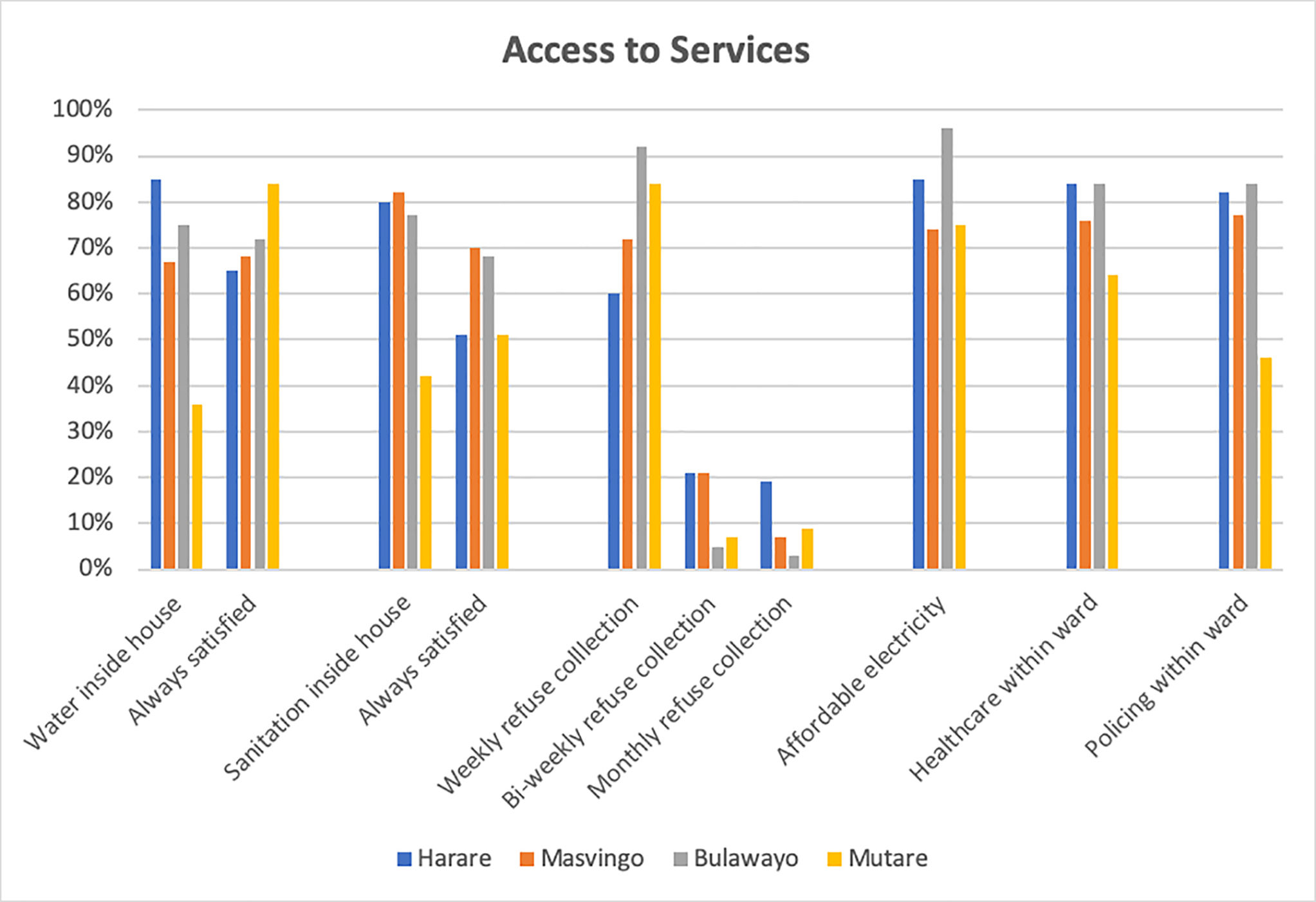 When asked about health facilities and services, a large number of those interviewed expressed their satisfaction with access to health care facilities and providers and the health care and treatment received. Respondents were, however, dissatisfied with access to medication.
When asked about health facilities and services, a large number of those interviewed expressed their satisfaction with access to health care facilities and providers and the health care and treatment received. Respondents were, however, dissatisfied with access to medication.
In both Bulawayo and Harare 84% of the respondents had access to health care within their respective wards. Masvingo was next with 76% and Mutare with 64%. Bulawayo was the city with the highest sample of respondents who stated that they had access to police services (84%) within their ward. Harare followed, with 82%, Masvingo with 77%, while Mutare tailed with 46%.
Early Childhood Development (ECD) centres were the service that respondents most widely perceived to be available. However, most of the respondents did not know if they were government-registered centres or not. Similarly, most of people were unaware of development projects conducted by their wards, what ward budgets were, and if there were recreational services in their communities.
Mutare
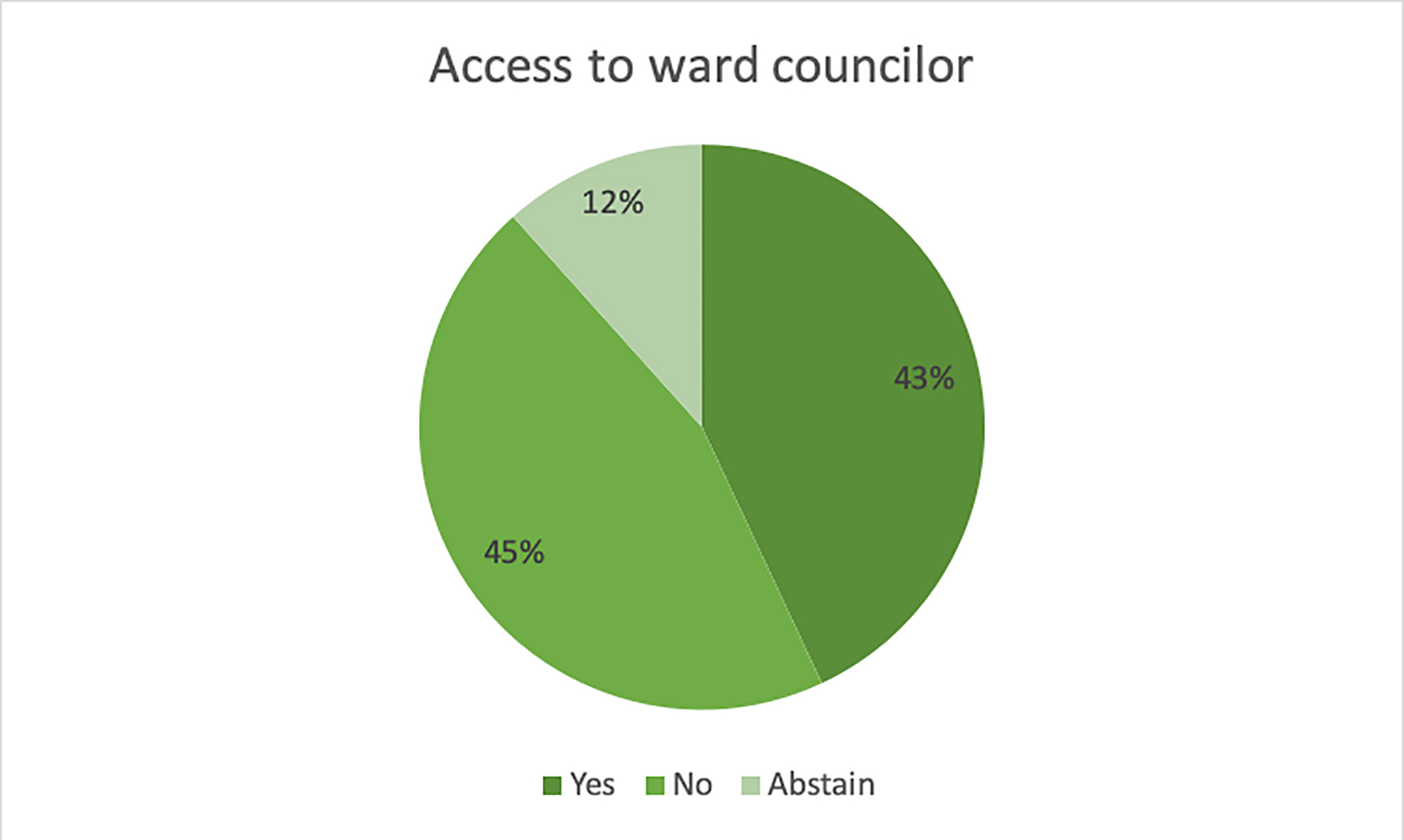
There was a huge gap between ward councilors and their citizens in all four cities. Citizens had very little knowledge of ward management and there were high levels of non-participation in ward-related activities such as budgetary meetings. The majority of citizens were dissatisfied with service delivery, but the majority also had access to all the services included in this survey.
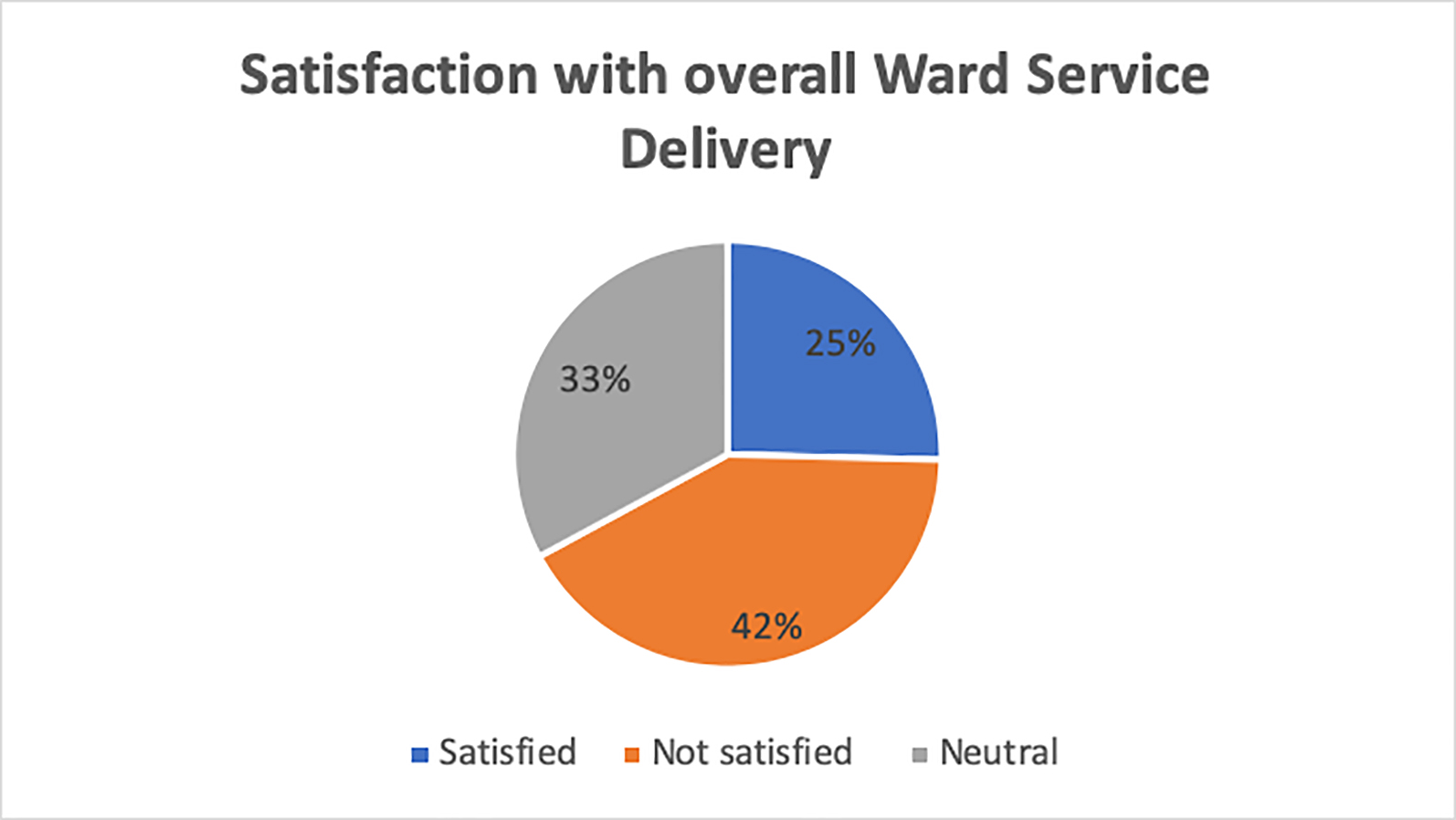 Citizens appear to believe that priorities at local government level are healthcare and nutrition, water and sanitation, employment and safety and security, all related to material deprivation.
Citizens appear to believe that priorities at local government level are healthcare and nutrition, water and sanitation, employment and safety and security, all related to material deprivation.
Overall, it was observed that Bulawayo was the best-performing out of the four cities, followed by Harare, Mutare and Masvingo. Although Masvingo trails behind the other three, the city performed well with regards to self-employed respondents.
This article is a summary of GGA-Z’s Citizen Engagement Survey 2019, in collaboration with TRACE.

